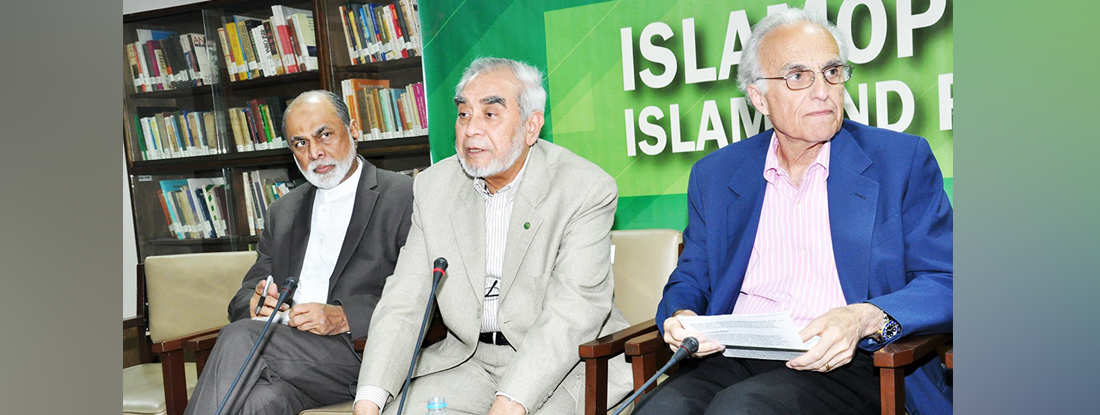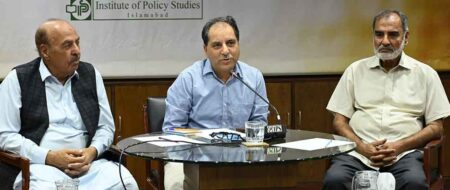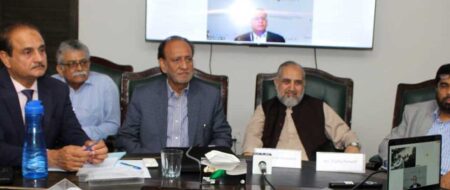Islamophobia, Islam & Politics
In the world politics today, especially for the West, Muslims are too many to be ignored and too weak to be accommodated. As Islamophobia is on the rise, the only solution to the problem is that Muslims regain their strength, intellectual as well as institutional, and work towards positive engagement in the society.
 These views emanated from a rich intellectual discussion following a lecture of renowned American scholar of religion and international affairs, Professor John L. Esposito at Institute of Policy Studies on March 30, 2017.
These views emanated from a rich intellectual discussion following a lecture of renowned American scholar of religion and international affairs, Professor John L. Esposito at Institute of Policy Studies on March 30, 2017.
The scholar is currently the president of the American Academy of Religion and a member of the E.C. European Network of Experts on De-Radicalisation and the board of C-1 World Dialogue and an ambassador for the UN Alliance of Civilizations, also founded the Center for Muslim-Christian Understanding at Georgetown University and is its current director.
The topic of his ‘Dr Mumtaz Ahmad Memorial Lecture’ was ‘Islamophobia, Islam & Politics’. The event was chaired by Professor Dr Anis Ahmad, vice chancellor, Riphah International University and was also addressed by Khalid Rahman, executive president of IPS, Dr. Salman Sayyid, Research Fellow at University of Leeds and Abdul Malik Mujahid, an Imam and Muslim community leader based in Chicago.
The audience included Christian and Jewish religious delegates from the US, researchers and students of different universities of Islamabad and Rawalpindi.
The speakers also spoke about double standards of the Western leaders and media while commenting on terrorist attacks committed by radical Muslims in contrast to the mass atrocities committed by the US or other Western powers in the Middle East, Afghanistan or other parts of the Third World. Also, when Morsi was ousted, the Western leaders including Obama were extremely cautious not to use the word ‘coup’.
Esposito said, Islamophobia was real and a serious issue. Although it has always existed but there has been an exponential rise of Islamophobia during US presidential election campaign and it seems to have been legalized now. The situation was grave not only in the United Stated but there was a wave of populism and xenophobia across the world, including Europe and Australia, he added.
The speakers maintained that while Islamophobia was seen as a threat to Muslims, it must be realized that in actual it was a threat for humanity in general, and to American and European societies, Muslims living there and non-Muslims living in Muslim societies in particular. They also stressed the scholars and young researchers to take up their studies in these areas as the topic needed considerable attention.
The speakers were of the view that one of the causes of Islamophobia was the weakness of Muslim institutions and lack of leadership. They also showed concern on the appalling role of US and European media to make Islamophobia worse.












